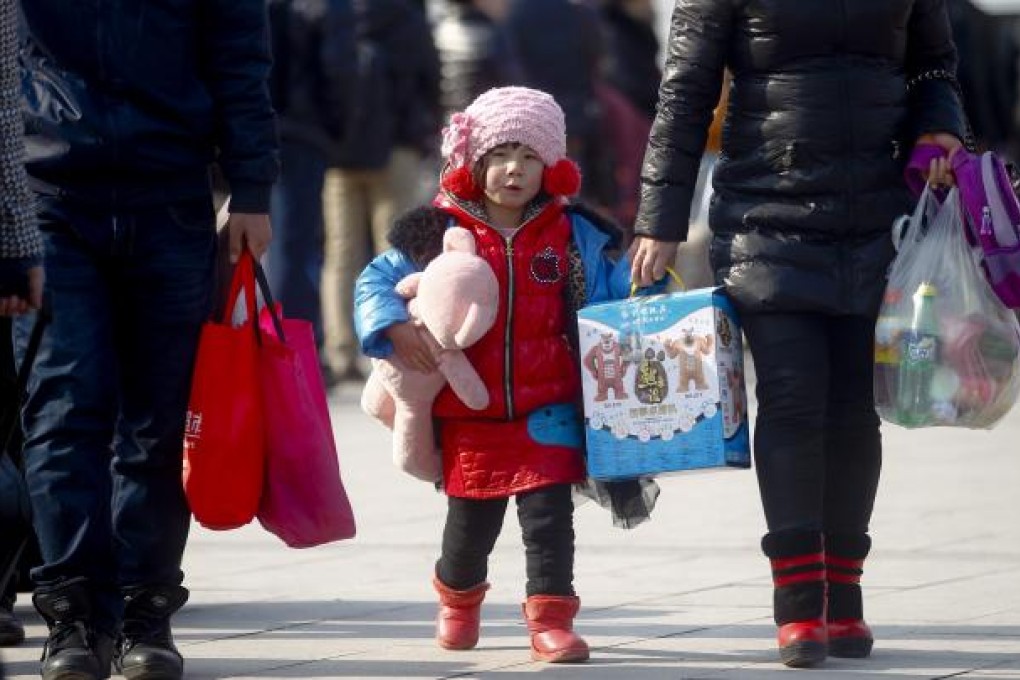
Beijing's top family planning official recently dismissed speculation that the one-child policy will be scrapped this year. Wang Xia, minister of the National Population and Family Planning Commission, says it will be around "for a long time". This does not inspire much confidence in the goal of the 12th five-year plan to revise the policy by 2015.
Wang says the government will continue to gradually ease restrictions. A case for a more decisive relaxation is to be found in the ageing of the mainland's population, partly attributable to the one-child rule. Reports of labour shortages in coastal industrial cities are a harbinger. Factual evidence has turned up in figures highlighted by the head of the National Bureau of Statistics, Ma Jiantang . They show the size of the working population aged from 15 to 59 fell last year by 3.45 million, to 937 million. He said this was the first such decline in recent history, and called for consideration of "appropriate and scientific" changes to the family planning restrictions.
Policy planners remain mindful that population control has been instrumental in the country's rapid economic rise. But calls for greater relaxation of this are growing - and compelling. The ageing of the generation that built the economic miracle has brought forward the policy's use-by date. More babies, not fewer, are needed now to avoid the economic and social consequences of serious population imbalance. Just as compelling are the arguments against a premature return to bigger families before Beijing marshals the socio-economic resources needed to cope with the extra demand for education, welfare, health care and so on.
The government already allows second children for ethnic minorities, rural couples whose first-born is a girl and couples where both partners are only children, while the rich and powerful simply flout the one-child restriction. Allowing all couples to have two children is unlikely to result in a massive surge in the birth rate, given the cost of child-raising.
A gradual relaxation no longer serves the country's best interests. Population policy should be revamped sooner rather than later, amid public disquiet over cruel enforcement of the one-child rule and disrespect for the law. The current policy is responsible for rampant sex determination and abortion, gross distortion of the birth ratio in favour of males and an ageing society. It is also an open invitation to human-rights and religious groups to attack China's reputation.